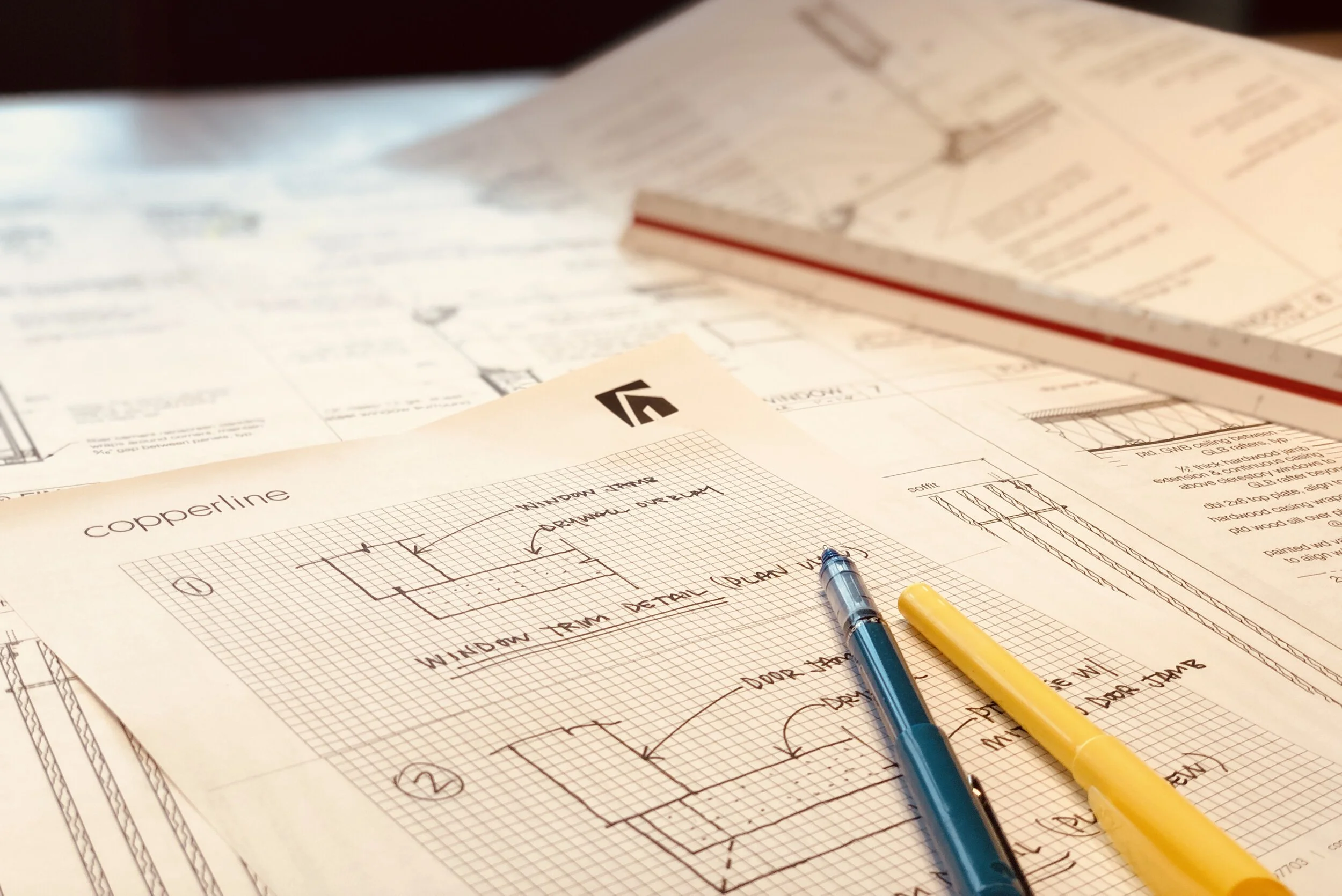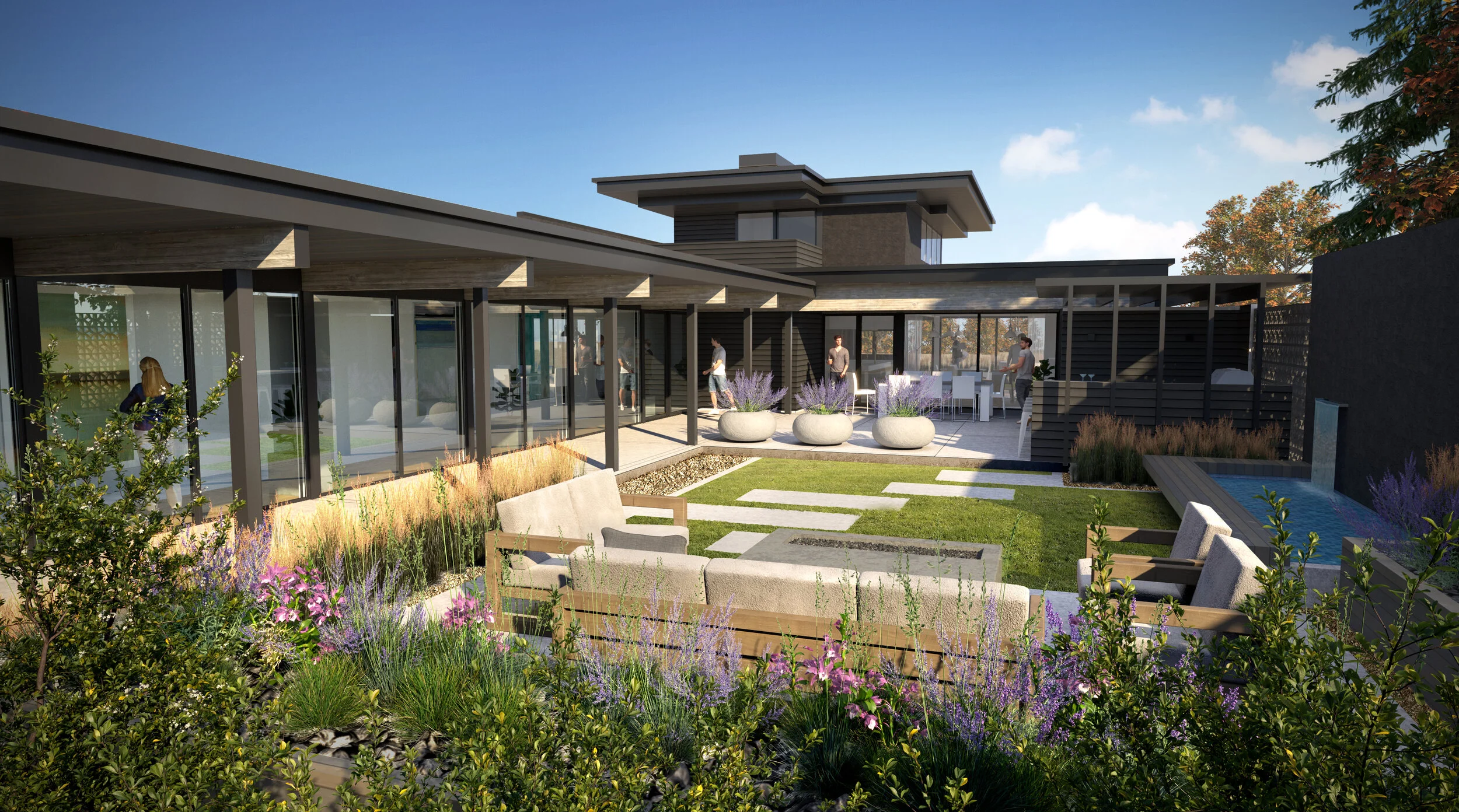How to Choose a Custom Home Builder
Choosing the right custom builder is up there with choosing the right life partner. Ok, well maybe not EXACTLY like choosing your spouse, but it’s not far off. You’ll likely be talking a lot about your finances, you share your hopes, dreams and family needs. You’ll be making countless decisions together, significant amounts of time will be spent communicating on the phone, via email, and via text. It’s a relationship that lasts, if you’re lucky, well beyond the completion of your home, but at the very least, for a year or more. Beyond the first impressions you might get when interviewing builders, it’s important to do your homework to ensure that the firm you choose not only feels like the right fit, but has the experience, industry relationships, works closely with clients, and has the ability to build the home you’ve always dreamed of. Here are some things we think are important to getting started choosing your builder.
CONSIDER YOUR OPTIONS
If you live in town, talk to your neighbors, talk to your friends, talk to your coworkers, talk to the real estate agent helping you purchase your lot, find out who has built the homes you admire in your prospective neighborhood. Talk to people in the field- designers, engineers, and subcontractors- they all have valuable information about what it’s like to work with various builders. If you haven’t chosen an architect yet, do this in conjunction with choosing your builder. The most successful projects stem from this collaboration. Chances are the architect you love will have a few builders he/she prefers to work with and vice versa. If you’re not a current Bendite; Google searching, website sleuthing, and social media scouring should give you a fairly good idea whether each builder’s portfolios speak to your individual design aesthetic. Make a list of these builders and give them a call.
Underfloor (see the home rendering below), of a home currently in progress.
ASK ALL OF THE QUESTIONS
Once you’ve narrowed your search to a few builders, make a list of questions and start interviewing. Don’t be afraid to write down answers, follow up with more questions, clarify any areas you don’t understand, and hone in on your prospective builder’s process, skills, and communication style. Here are a few questions we get asked time and again, and a few we think are important not to overlook:
How many homes have you built? How many have you built in the past year and how many do you anticipate building this year? How long have you been in business?
What types of homes have you built? Where? What price range?
How long does it take you to complete a home similar to the one I want to build?
How do you communicate with your team? How do you keep everyone (architect, engineer, subcontractors, clients) on the same page?
What is your process for billing and budgeting and how will this be communicated to me throughout the course of the project?
Who will be responsible for overseeing my project and who will I communicate with about the progress of my home?
Do you have experience building the type of home that I want? Are there completed homes that I might tour in that style?
Do you have a list of references I can call?
How is the price of my home determined? How will changes to the project affect that price?
Architectural rendering of a project currently in the works.
TOUR SOME HOMES AND TALK TO PAST CLIENTS
Giving your prospective builder the opportunity to walk you through a past project or two will give you an idea of their attention to detail, the craftsmanship of their work, and the fit and finish of their completed projects. Additionally, following up with clients who have worked with your prospective builder is an excellent way to find out more about how each builder works and their respective personalities and communication styles. At the end of the day, the most important components of a client/builder relationship are trust and communication. After you’ve checked all the boxes and asked all the questions, who are the people you want to have as your guides through the homebuilding process? Who makes you feel like they understand what you want and have your interests at heart? Your dream home will be made a reality in the hands of your trusty and experienced builder so take your time to make the choice that feels like the best fit for you.



